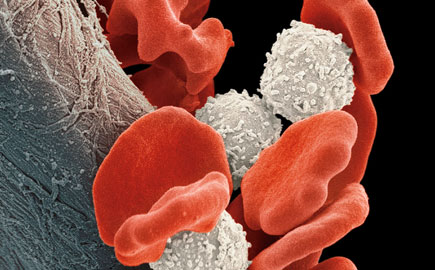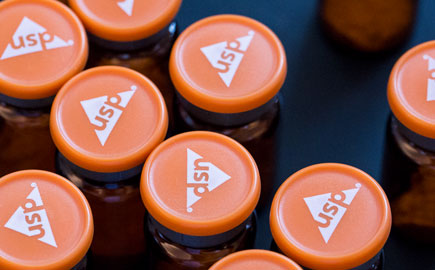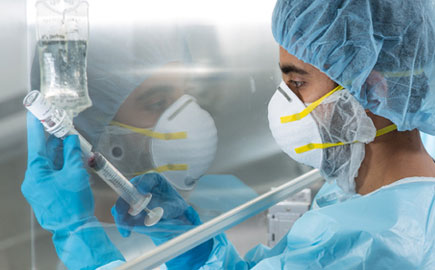Protecting patients through science
Scientific expertise and advancement are at the core of USP's work to develop quality standards and are the foundation of all our related activities and programs that help assure the quality and safety of medicines, dietary supplements and foods around the world. Through the development of reference standards for specific ingredients, impurities and finished products, as well as our written standards for processes such as tests, procedures, and packaging and distribution, we set the standard for the science of quality. USP standards help build trust in medicines, which improves the health of people all around the world.
Setting the standard: The U.S. Pharmacopeia
For the first U.S. Pharmacopeia in 1820, the founders sought to select the best understood medicinal substances and preparations of the day and to define the terminology physicians and pharmacists would use to communicate about them. Since then, the U.S. Pharmacopeia and the National Formulary (USP–NF) has become an essential global compendium on drug quality.
Beginning in 1932, USP also began creating reference standards (also known as physical standards), which are materials developed under a rigorous quality system. These standards enable pharmaceutical manufacturers to test their product against USP's standards to ensure it meets specifications. They are evaluated using multi-lab collaborative studies to address real-life inter-laboratory variability in measurements.
The first U.S. Pharmacopeia contained formulas for the preparation of 217 drugs considered to be the most fully established and understood at the time. Today, 4,900+ official USP–NF monographs, written standards that provide specifications for identity, strength, purity and potency, are linked to USP Reference Standards to meet compliance requirements for FDA-approved drugs.

USP's staff, expert volunteers and stakeholders make a difference
As the need for the U.S. Pharmacopeia continued to grow, so did its ranks of volunteers and, much later, paid staff. USP hired its first director of revision and executive assistant in 1949.
Today, our more than 1,200 staff collaborate with a network of more than 800 independent scientists and other experts who work for the public interest, volunteering their expertise to further the organization's mission and create the standards that build trust in the world's medicines.
"I found that with my committee members, we share the same common passion," said Xiaorong He, Ph.D. "We want to enhance quality standards for the public. I found that USP can provide this platform and opportunity for us to bring this passion to fruition."
Independent scientists, like Dr. He, who volunteer their time and knowledge are essential to the quality of USP standards. Learn more about becoming a volunteer and consider applying today.
In addition to our volunteers, USP develops quality standards in partnership with health practitioner and scientific associations, academic institutions, government bodies and associations, consumer organizations, manufacturer and trade associations, pharmaceutical companies and manufacturers, and nongovernmental standards-setting and conformity assessment bodies around the world.
For nearly 200 years, USP has contributed to patient safety and public health by providing a forum where "the views of a diverse array of stakeholders are fully exchanged and the resulting quality standards reflect those views and are based on the best available science."
USP science: Expanding across the globe
"USP is having an increasing global impact in improving public health," said Jaap Venema, executive vice president and chief science officer for USP. "We are working to share scientific information and ideas, provide in-region training on USP standards, and make our pharmacopeia and other publications accessible through translation, adoption and adaptation around the world."
As we headed into the twentieth century, USP opened international state-of-the-art laboratories and office sites in order to expand our ability to support global medicine quality. These sites provide collaborative testing, technical assistance, and training and education in their respective regions: Hyderabad, India (2006); Shanghai, China (2007); São Paulo, Brazil (2008); and Accra, Ghana (2013).
Today, USP continues to increase our global footprint to offer not only reference standards and monographs that serve as quality benchmarks for medicines around the world, but also important training and advocacy for medicine quality.




